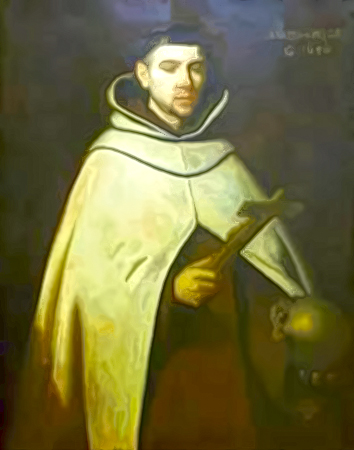
Today, we celebrate the memorial of the great Spanish mystic St. John of the Cross. Bishop Robert Barron writes that we find ourselves, St. John of the Cross taught, amid a good and beautiful world, but we are meant finally for union with God. Therefore, the soul has to become free from its attachments to finite things to be free for communion with God. When John of the Cross speaks of the dark night of the soul, he is speaking of a purifying passage that an individual undergoes, transforming one kind of life into another. This transformation, as articulated by John, is understood as something that pertains mainly to prayer. Rarely is it understood as something that has to do with our entire lives. However, what John describes in his concept of the dark night of the soul is really the paschal mystery, the movement from death to new life, the movement from Good Friday to Easter Sunday. This movement has to do with the transformation of our whole lives. Thus, John’s outline can serve as a paradigm of paschal transformation. The dark night of the soul traces the pattern that love, service, and prayer must pass through to be transformed to new and eternal life. Like all purifications, this one is painful, especially if one’s attachment to these finite things is intense. It will often manifest itself, John of the Cross said, as dryness in prayer and a keen sense of God’s absence and even abandonment. In this process, God is not toying with the soul; instead, he is performing a kind of surgery upon it, cutting certain things away so that its life might intensify.
